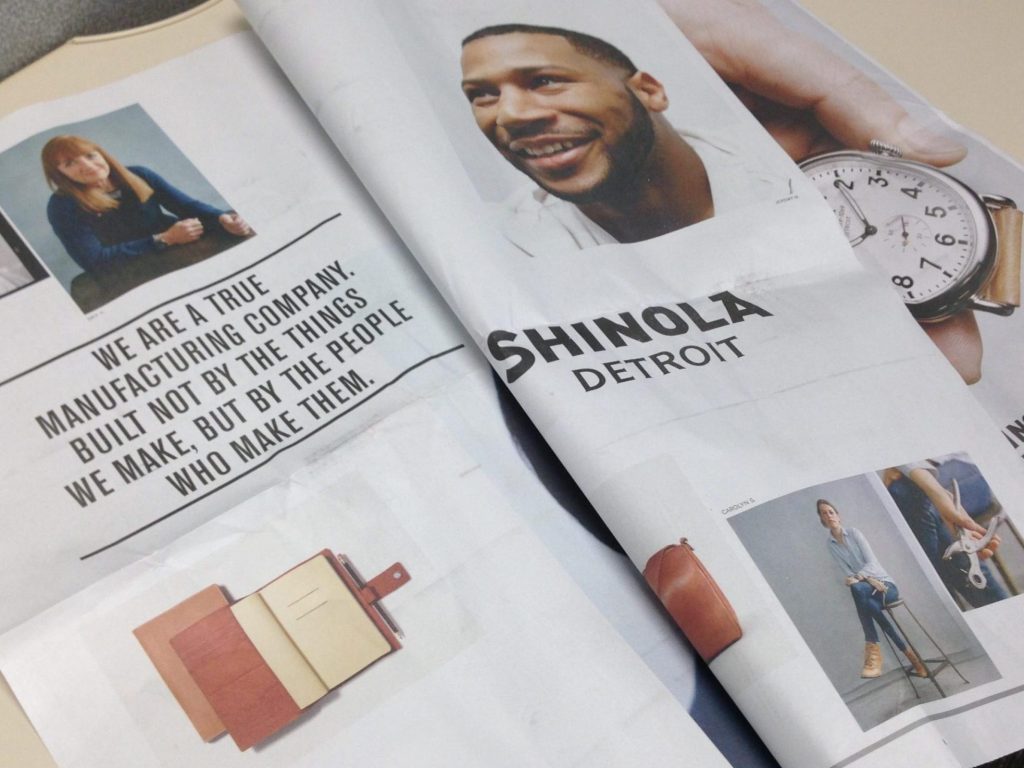To cut costs, speed up production, and be more streamlined, domestic manufacturers in the apparel segment and beyond have concentrated their operations on suppliers in a few countries – all of which are outside of the United States. “These global supply chains created savings and boosted profits when all was running smoothly, according to International Institute for Management Development academics Stéphane Girod and Natalia Olynec. “But the disruption from the COVID-19 pandemic was been immense” given that more than 90 percent of the apparel sold in the U.S., for instance, is made internationally. Now sweeping tariffs stand to disrupt the equation even further.
With some 40 percent of clothing purchased in the U.S. coming from China, brands and retailers in the U.S. and other Western markets are slated to suffer from increased costs as a result of newly imposed reciprocal tariffs under the Trump Administration. The impending escalation in price will inevitably compel companies (including those in the luxury segment) to explore alternative strategies, including reshoring (bringing production back to the U.S.), nearshoring (relocating production to neighboring countries), and diversifying supplier bases to mitigate tariff impacts.
However, the effectiveness of tariffs in revitalizing domestic manufacturing remains debated. Economists argue that factors, such as automation and higher domestic labor costs may limit the return of manufacturing jobs to the U.S., despite the protective measures.
The potential for a surge in reshoring efforts in the U.S. (and beyond) would prove striking for fashion industry entities. While a number of well-known names already manufacture their wares in the U.S., including Louis Vuitton, which maintains several factories in the U.S., including one that it opened in Texas in 2019 during Trump’s first Presidential term, the domestic fashion industry largely relies on internationally outsourced garments and accessories.
Made in the USA
Against that background, a shift back to manufacturing in the U.S (to the extent that it is possible) would bring an increased emphasis on the ins-and-outs of “Made in USA” labeling, an area that will likely be subject to increased attention and enforcement.
In a nutshell, the Federal Trade Commission (“FTC”) prohibits marketers from including unqualified “Made in USA” claims (i.e., broad representations without explicit limitations) on labels unless: 1) final assembly or processing of the product occurs in the U.S., 2) all significant processing that goes into the product occurs in the U.S., and 3) all or virtually all ingredients or components of the product are made and sourced in the U.S.
> The FTC published its Final Rule for “Made in USA” and other unqualified U.S. origin claims on product labels in July 2021. The FTC states that the Rule does not impose any new requirements on businesses, but it codifies the FTC’s long-standing enforcement policy statement regarding U.S. origin claims.
In July 2024, the FTC released an updated version of its Complying with the Made in USA Standard business guide, and while the bulk of the guidance remains the same, the FTC made it so that marketers may now be subject to civil penalties if they make unqualified “Made in the USA” claims on labels for a product that is not “all or virtually all” made in the USA, including online or in catalogs, and are required to review their substantiation to make sure the claims remain accurate and make any necessary revisions if not.
A History of Enforcement
Hardly an untested rule, the FTC actively enforces its regulations against deceptive “Made in USA” claims to protect consumers and ensure fair competition. The FTC revealed last year that since finalizing the Made in USA Labeling Rule in 2021, it has initiated 11 enforcement actions, resulting in over $15 million in judgments against companies found to have falsely labeled their products as being “Made in the USA.”
Among such actions was the FTC’s case against Williams-Sonoma, which saw it impose a record $3.17 million civil penalty on the home- and kitchenware retailer. According to the FTC, the company had violated a 2020 FTC order by falsely advertising a range of products, some of which were manufactured in China and other countries, as being made in the United States. This marked the largest penalty ever levied in a “Made in USA” enforcement action at the time.
In January 2024, Kubota North America Corporation faced similar scrutiny. The company agreed to pay a $2 million civil penalty after the FTC found that it had mislabeled certain replacement parts as “Made in USA.” In reality, those parts were either wholly imported or contained significant foreign components. The FTC also took action against Instant Brands, the parent company of Pyrex, in October 2024. The agency facilitated $88,000 in refunds to over 10,000 consumers who purchased Pyrex measuring cups that had been falsely advertised as “Made in USA.” These cups were, in fact, produced in China. The refund effort was a direct response to misleading labeling that misrepresented the origin of the product.
In a case that hits a bit closer to home (for fashion and accessories brands), the FTC took action against Shinola in 2016 for marketing its watches as “built” in Detroit. While final assembly of the company’s watches was deemed to have taken place in its Detroit, Michigan headquarters, the company’s watches consisted entirely of foreign parts, according to the FTC. In connection with the matter, Shinola agreed to include language alerting consumers that while its watches may be “Built in Detroit,” they are built “with Swiss and imported parts.” The company also agreed to abandon its “Where American is Made” slogan.
As Truth in Advertising, Inc. noted in a reflection on the matter, the Shinola case has left open some interesting issues. Among them: implied indicators of source that result from a brand name. “By focusing on direct, express claims like ‘built’ in Detroit, the FTC may have overlooked less obvious, implied claims that communicate the same message.” In other words, “Shinola can communicate to consumers that its watches are built in Detroit” – or are of American origin – “without saying its watches are ‘built’ in Detroit, as there are only so many conclusions one can draw from a watch that has the words ‘Shinola’ and ‘Detroit’ in close proximity to each other on its watch face.”
Looking Forward
These cases (and other like them) illustrate the FTC’s willingness to impose significant financial penalties on companies that mislead consumers about the origin of their products. The Commission’s enforcement actions serve as a clear warning to companies that false “Made in USA” claims will lead to serious consequences.
As for what this will look like during Trump’s second term, Davis & Gilbert’s Ronald Urbach and Alexa Meera Singh stated in a recent note that the Trump Administration “is likely to exert more control over the FTC’s priorities and actions, [which] may mean a focus on [things like] ‘Made in USA’ claims.”














